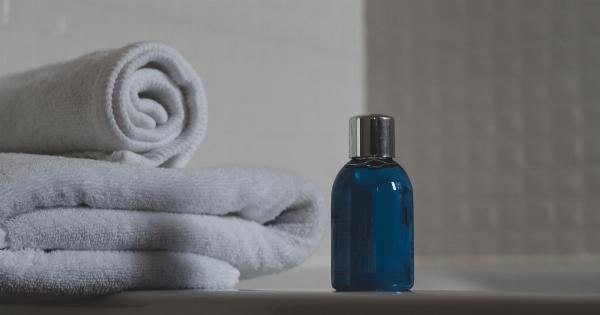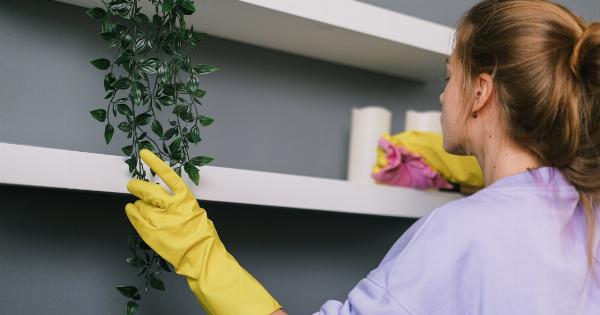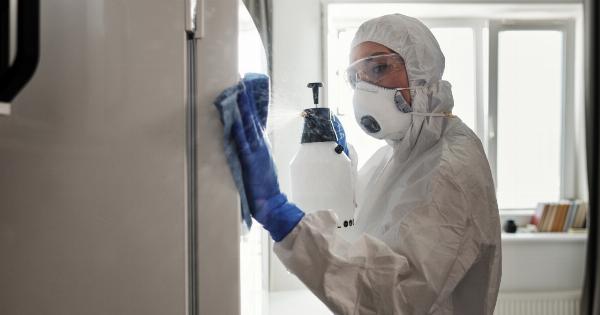Personal hygiene is an essential aspect of our daily lives. It not only helps us maintain our physical health but also contributes to our overall well-being and self-confidence.
However, there are several myths and misconceptions surrounding personal hygiene that often lead to confusion and misunderstandings. In this article, we aim to unravel the truth behind some of the most common myths related to personal hygiene.
Myth #1: Washing Your Hands with Soap and Water Kills All Germs
One of the most prevalent myths about personal hygiene is that simply washing your hands with soap and water can eliminate all germs. While regular handwashing is undoubtedly crucial in preventing the spread of diseases, it is not entirely foolproof.
Washing your hands with soap and water is effective in removing visible dirt, grime, and a significant number of germs. However, it may not completely eradicate certain types of microorganisms, especially those that are highly resistant.
For instance, some bacteria, such as Clostridium difficile, which causes severe gastrointestinal infections, are not easily eliminated by handwashing with soap and water alone.
In such cases, using hand sanitizers containing at least 60% alcohol can provide a more effective means of eliminating these resilient bacteria. Therefore, while regular handwashing is essential, it should be supplemented with other hygienic practices to ensure maximum protection against germs.
Myth #2: Shaving Makes Hair Grow Thicker and Faster
This myth has been circulating for years, leading many individuals, particularly women, to avoid shaving certain parts of their bodies out of fear that it will cause the hair to grow back thicker and faster. However, this belief is entirely unfounded.
Shaving does not alter the thickness or rate of hair growth.
When you shave, you only remove the hair shaft above the surface of the skin. The hair follicle, responsible for hair growth, remains intact beneath the skin.
As a result, the new hair that grows after shaving appears to be thicker because it has a blunt edge, rather than a tapered end. Over time, the new hair will naturally return to its original texture and rate of growth.
Myth #3: Deodorant and Antiperspirant Are the Same Thing
Contrary to popular belief, deodorant and antiperspirant are not the same. While they share the common goal of combating body odor, they achieve this through different mechanisms.
Deodorants work by neutralizing or masking the odor caused by bacteria that break down sweat. They often contain fragrance and antimicrobial agents to inhibit bacterial growth. However, deodorants do not prevent sweating itself.
On the other hand, antiperspirants are specifically formulated to reduce sweating. They typically contain aluminum-based compounds that form temporary plugs within the sweat ducts, restricting the flow of sweat to the skin’s surface.
By reducing the amount of sweat released, antiperspirants help control body odor as well.
It is important to note that sweating is a normal bodily function that helps regulate body temperature. Therefore, excessive or prolonged use of antiperspirants may interfere with the body’s natural cooling mechanism.
If you prefer to reduce the use of antiperspirants, choosing a natural deodorant or opting for products with milder sweat-reducing ingredients may be a better alternative.
Myth #4: Using Public Toilet Seats Can Lead to Health Issues
The idea that sitting on a public toilet seat can lead to various health issues, including urinary tract infections and sexually transmitted infections, is a common myth.
However, the likelihood of contracting an infection from a toilet seat is incredibly low.
Most bacteria and viruses that cause infections cannot survive for long periods outside the human body. Additionally, the skin acts as a protective barrier, making it difficult for microorganisms to penetrate and cause harm.
Unless there are open wounds or cuts on your buttocks or thighs, the risk of infection from sitting on a toilet seat is negligible.
If you are still concerned about the cleanliness of public toilet seats, you can use disposable seat covers or create a barrier by lining the seat with toilet paper.
Additionally, practicing good hand hygiene, such as washing your hands thoroughly after using a public toilet, is far more effective in preventing the transmission of germs.
Myth #5: Natural or Organic Products Are Always Better
The rising popularity of natural and organic products has led to the belief that they are inherently better and safer than their synthetic counterparts.
While natural and organic products can offer certain benefits, it is crucial to understand that not all natural substances are beneficial, and not all synthetic substances are harmful.
Skin care and personal hygiene products, whether natural or synthetic, undergo rigorous testing and evaluation to ensure their safety and efficacy. Both categories have their advantages and drawbacks.
Natural products may contain plant-derived ingredients, which can be gentle and nourishing for the skin. However, they may also contain allergens or irritants that can trigger adverse reactions in some individuals.
On the other hand, synthetic products often undergo extensive formulation and testing to minimize potential side effects and maximize specific benefits.
When it comes to personal hygiene, what ultimately matters is finding products that suit your individual needs and preferences.
Whether it’s natural or synthetic, ensuring that the products are dermatologically tested, allergen-free, and suitable for your skin type is more important than blindly following the trend of natural or organic labeling.
Myth #6: Brushing Your Teeth More Than Once a Day is Unnecessary
While it is widely recommended to brush your teeth at least twice a day, some individuals believe that brushing once a day is sufficient. However, this myth can have detrimental effects on oral health.
Brushing your teeth twice a day is essential in maintaining proper oral hygiene. It helps remove plaque, which is a sticky film of bacteria that forms on teeth and gums. If left undisturbed, plaque can lead to tooth decay, gum disease, and bad breath.
Alongside brushing, daily flossing and the use of mouthwash can further enhance your oral hygiene routine. Flossing helps remove plaque and food particles from between the teeth and along the gumline, where toothbrush bristles may not reach.
Mouthwash, particularly those containing fluoride, can provide additional protection against tooth decay and gum disease.
Myth #7: Sharing Personal Hygiene Items Is Safe
Sharing personal hygiene items, such as towels, razors, or toothbrushes, can seem harmless, especially among family members or close friends.
However, these items can harbor bacteria, viruses, and other infectious microorganisms that can easily be transmitted from one person to another.
Using someone else’s towel or razor can facilitate the transfer of pathogens, including those responsible for skin infections, cold sores, or even bloodborne diseases.
Similarly, sharing toothbrushes can introduce bacteria, fungi, and viruses that may lead to oral infections or other illnesses.
It is vital to avoid sharing personal hygiene items and educate others about the potential risks. Each individual should have their own dedicated items and maintain good hygiene practices to minimize the chances of spreading infections.
Myth #8: More Showering Equals Better Hygiene
Another common misconception is that showering multiple times a day equates to better hygiene. While showering is an essential part of personal hygiene, excessive showering can actually have adverse effects on the skin and hair.
When you shower, the water and cleansers you use can strip away the natural oils and beneficial bacteria that protect your skin and maintain its moisture balance.
Overly frequent showering can lead to dryness, irritation, and even conditions such as eczema or dermatitis.
For most individuals, bathing once a day or every other day is sufficient to maintain proper hygiene. However, certain factors, such as physical activity or hot weather, may necessitate more frequent showers.
It is essential to strike a balance and listen to your body’s needs without overdoing it.
Myth #9: Cleaning Your Ears with Cotton Swabs is Safe
Many people use cotton swabs or Q-tips to remove earwax from their ears. However, this common practice can actually do more harm than good.
The ear canal is a delicate part of the body, and using cotton swabs can push the wax deeper or damage the sensitive skin inside the ear.
Earwax, or cerumen, serves as a natural protective barrier that helps trap dust, debris, and harmful microorganisms, preventing them from reaching the eardrum.
The ears are self-cleaning, and excess earwax typically moves to the outer ear naturally, where it can be gently wiped away during regular bathing or showering.
If you experience a buildup of earwax that affects your hearing or causes discomfort, it is advisable to consult a healthcare professional, such as an ear, nose, and throat (ENT) specialist.
They can safely and effectively remove the excess wax using appropriate tools or techniques without risking damage to your ears.
Myth #10: Perfume or Fragrance Can Replace Bathing
A common misconception regarding personal hygiene is that using fragrance or perfume can effectively mask the lack of bathing or cleanliness.
Although applying perfume or fragrances may temporarily mask Body odor, it does not address the root cause, which is the accumulation of bacteria and sweat on the skin.
Perfume serves as a cosmetic product intended to enhance a person’s scent, not to replace proper hygiene practices.
Relying solely on perfume without practicing regular bathing will not effectively eliminate the bacterial buildup or maintain cleanliness.
To effectively combat body odor, it is crucial to practice good hygiene habits, such as regular bathing or showering, using antibacterial soaps, and wearing clean clothes made from breathable materials.






























